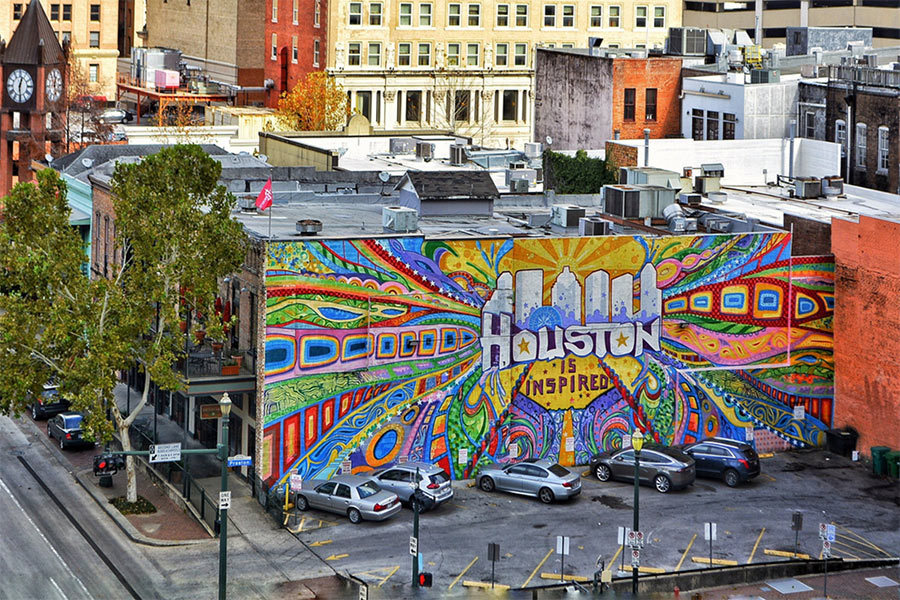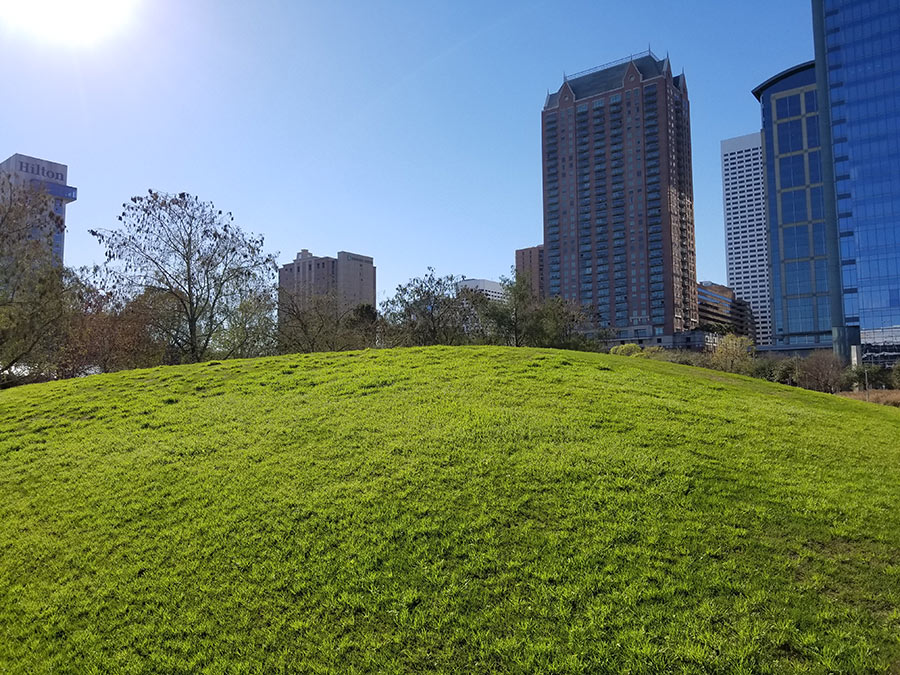
- Houston Will Lead Nation in Retail Space Construction This Year With More Than 3.2M SF Completed [Realty News Report]
- ExxonMobil Moves To Dismiss Its Own Property Tax Lawsuit with Appraisal District [Houston Chronicle]
- 98.3% of Houston Homes Have Positive Equity in 2016, Finds Fannie Mae, CoreLogic Report [HBJ]
- Fiesta Mart Reopens Redesigned Store at 800 S. Wayside Drive [HBJ]
- Pappasito’s Opening Woodlands Cantina Technically in Shenandoah on Sept. 13 [Houston Chronicle]
- Inside Vitol’s New Kirby Grove Office Space Designed To Look Like a Museum [HBJ; previously on Swamplot]
- How Houston Was Robbed of Its Tallest Skyscraper [Houston Chronicle]
- Hurricane Evacuation Main Topic at First-Ever Galveston County Transportation Summit [Houston Public Media]
- Harris County Public Health Director Calls On EPA To Remove Toxic Waste from San Jacinto River [Houston Chronicle; previously on Swamplot]
Photo of EaDo: Russell Hancock via Swamplot Flickr Pool
Headlines





Re: Exxon Mobil Backs Off from HCAD
.
I had a chuckle at reading the article that noted that the Exxon Mobil campus property owner shut down its own lawsuit one day before having to disclose financial info on the property. It sounds like they didn’t want more important dirt from coming out (my pure speculation) – or to tip their hands that they really couldn’t justify a lower appraisal value.
.
An added irony is that HCAD issued their 2016 appraisal – for an 8+ percent increase.
Re: How Houston Was Robbed of Its Tallest Skyscraper
___________________________________
The Houston Comical is always good for a chuckle on their many daily BS articles about nonsense and nothing. Decades ago in the 80’s oil bust, Houston was 75% oil and did indeed suffer. But today it’s 35-40% oil, and Houston is much more diversified and twice the size, population and much more powerful now, than then. That’s why even with lower oil prices, new fabulous towers break ground in Houston weekly. So the temporary lower oil prices now, while challenging, don’t have nearly the adverse affect they would have, if not for Houston’s extraordinary growth and diversification. Thank God for the city’s dynamic resilience. The real reason downtown did not then, and does not now build above 75 floors, is because Houston haters (primarily from New York and Chicago) had their congressional leaders write a BS clause into the FAA Hobby airport flight approach patterns to limit skyscrapers in downtown Houston to 75 floors. They want to be the only 2 cities in America building up to 100; and they know that if allowed, Houston would already have a couple of 85+, or 100 floors towers downtown, and they would have to share that bragging right with Houston. We’ll see a 85+, or 100 floor tower uptown (which doesn’t have the restrictions), before we will downtown, unless the restrictions are removed…but if such were ever proposed for uptown, I’m sure someone from Chi or NY would have their people slip another clause into the FAA (while our Houston reps look the other way). It’s a dirty way to try to stop/limit your competition, but their congressional leaders are smarter than ours. Our congressional leaders are busy taking bribes by denying their own city desperately needed rail transit development, and giving our transit dollars to other cities like (Chicago and New York, lol)…or they’re very busy being repulsively loud-mouthed and making-out with every TV camera they see, helmet-hair and all. So it was a shitty thing for the Houston haters to do, but they know our hillbilly, loud-mouthed, worthless congressional reps are pathetic and won’t do anything about it (unless paid a bribe, of course).
Honest Truth: That’s quite a claim. Any evidence?
@Cody
It’s all public knowledge. If you aren’t old enough to have been around when it all went down, I’m sure you could find it all hidden far down on the back pages of Google searches. History and time have buried it, but the restrictions are there, and probably won’t be brought out again until a developer proposes to go above 75 floors in downtown Houston.
meh. competing for the tallest building is the civilizational equivalent of comparing certain body part sizes. Houston may have been “robbed” of it back when it was a headstrong teenager, but with maturity comes the realization that it’s really not necessary to spend ridiculous amounts of money just to have the tallest, shiniest building on the block.
The Bank of the Southwest tower plans got recycled and shrunk, and ended up being the Prudential Tower in Chicago, built around 1990.
The FAA restrictions are real, though I’m not sure all the conspiracy theories are true. To add one though, Ben Love didn’t want anything built in Houston taller than his Texas Commerce Tower ( aka Chase Tower).
@Honest Truth, the actual truth is that this oil crash is different than the 80s not because we’re “more resilient” but that it’s playing out a little differently. The 80s glut actually started in ’81 but it wasn’t until local Texas banks (who were heavily leveraged in oil) started crashing around ’85-’86 that really put the squeeze on the Houston/Texas economy.
.
This time, it’s those no good New Yorkers — hedge funds and big banks — who invested heavily into shale based on overblown claims by the oil industry. So, while even though the current oil glut started in 2014, it’s taken a while to shake out because the lenders have more resources and drillers more tricks (like equity-for-debt swaps) to work with. The investors are willing to keep giving more rope to the drillers because there aren’t any other investments out there that promise the sort of returns drillers brag about. But it’s just a matter of time before they’ve burned through all the cash, equity, and debt they have before the shakeout is done. UH’s own business department estimates for every oil job, there are 4 dependent non-oil jobs in Houston. This year we’re just finally starting to see the ripple effects in other industries.
.
If we’ve learned anything from this episode, it’s that only sustained, high oil prices can turbocharge Houston’s economy like it did 2010-2014. The problem is, those high oil prices are a real drag on global economic growth, which creates these gluts/overhangs. Add to that the real drive for a lot of cities and countries to decrease fossil fuel use to slow climate change, and the fossil-fuel centered Houston economy doesn’t have a bright future.
@HonestTruth:
.
No. The FAA restrictions on buildings only extend about 4 miles from airports. Houston has no special restrictions on building height, and Hobby is about 10 miles away.